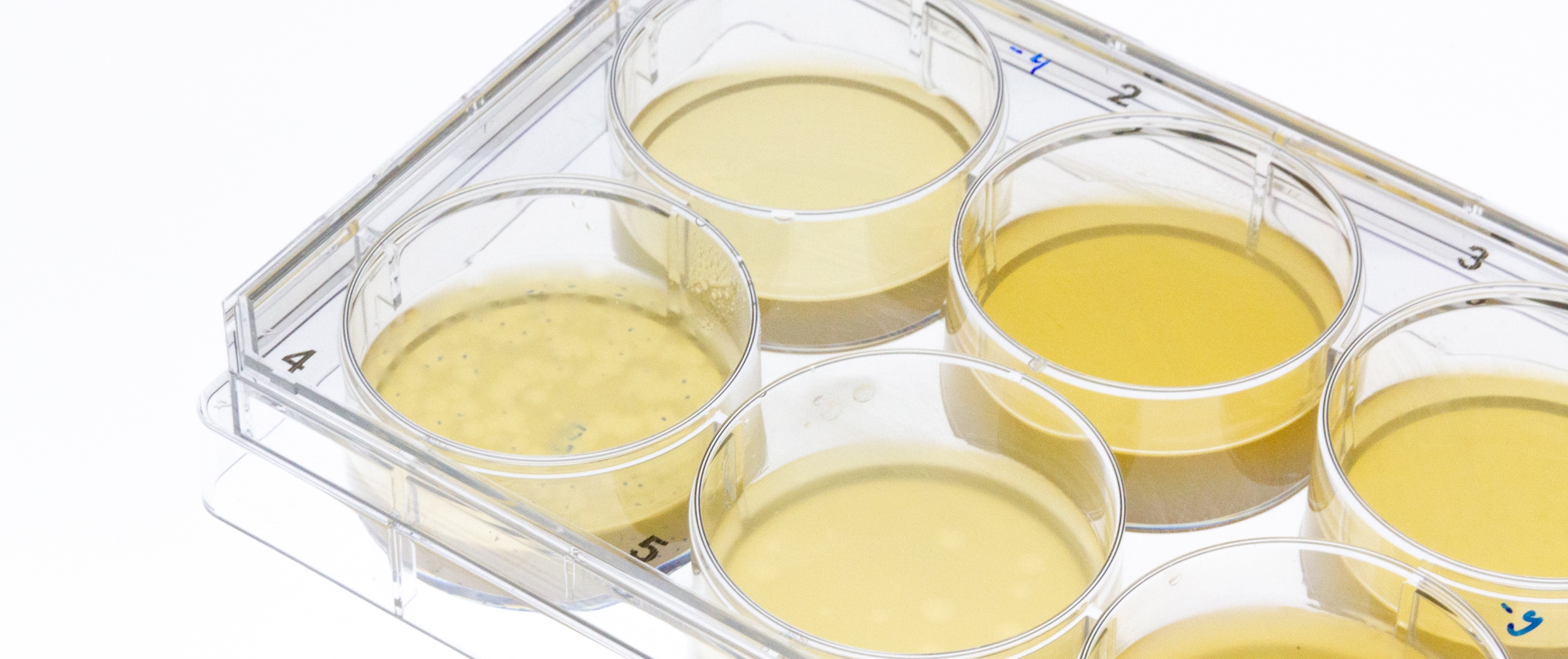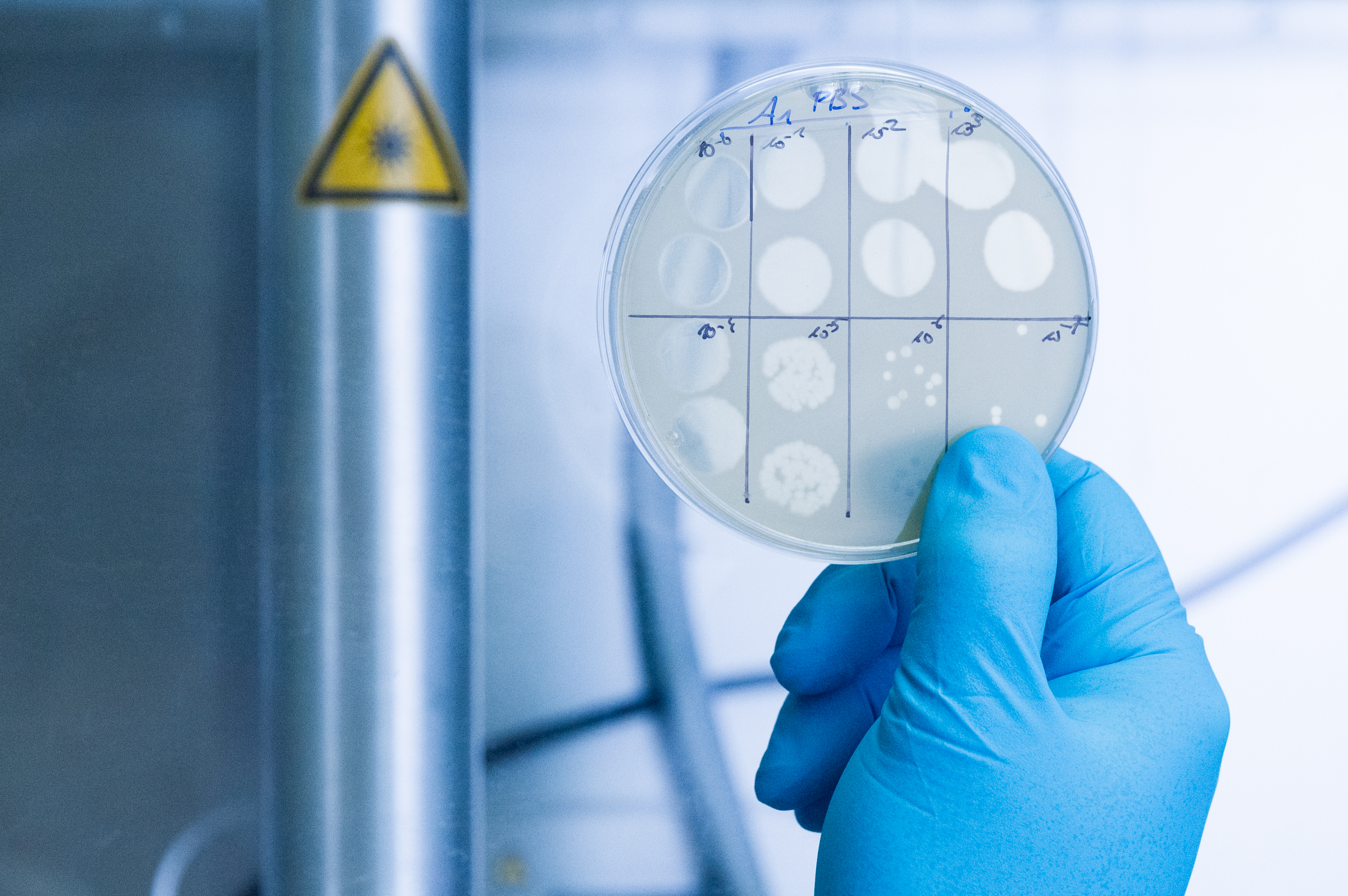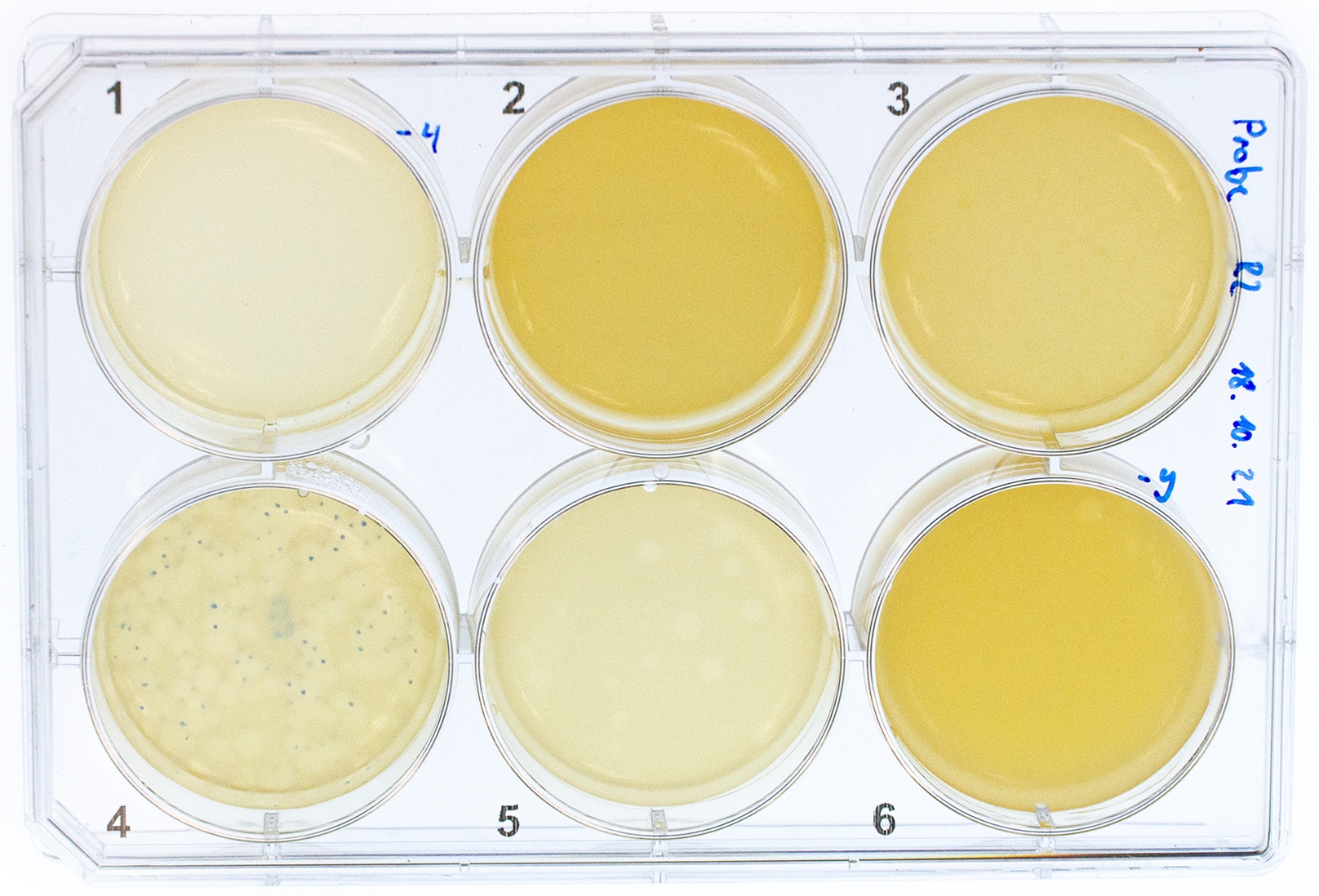The therapeutic potential of phages has long been successfully exploited in Georgia and some Eastern European countries. Both mild and severe bacterial infections such as burns, gastrointestinal and genitourinary tract infections, or cystic fibrosis-associated infections, can be treated with phages.
Phages against caries pathogens
In the "Kari-EX" project, we at the IGB have shown that phages can really destroy bacteria in a targeted manner and are suitable for a potential medical application, using caries pathogens as an example.
Are you interested in implementing the use of phages against caries therapeutically? Come and talk to us!
Phages as an alternative to antibiotics
Due to the rapid rise of antibiotic-resistant (AMR) bacteria worldwide, and especially an increase in multi-resistant bacteria such as methicillin-resistant Staphylococcus aureus (MRSA) or Extended Spectrum β-lactamase (ESBL) producing pathogens, the calls for alternative therapeutic options are increasing. This is even more pronounced by a recent analysis performed by the WHO´s AMR division dealing with antibacterial agents in preclinical development [World Health Organization, Antibacterial agents in preclinical development: an open access database. 2019] which now lists also bacteriophages and phage-derived peptides.
Bacteriophages may play an important role in the future and be used in medicine to treat antibiotic-resistant bacteria. Furthermore, huge potential is seen for applications in the food- and agricultural industry, for example to ensure the hygienization of food products or to reduce the usage of antibiotics in animal farming.
Circumvent bacterial antibiotic resistance
We are your partner for phage research! Contact us if you are interested in a development cooperation.
Please note that we are not allowed to provide phages to private persons. Our offer always refers to a development of phages in the context of a cooperation with research, clinics or companies.
 Fraunhofer Institute for Interfacial Engineering and Biotechnology IGB
Fraunhofer Institute for Interfacial Engineering and Biotechnology IGB


